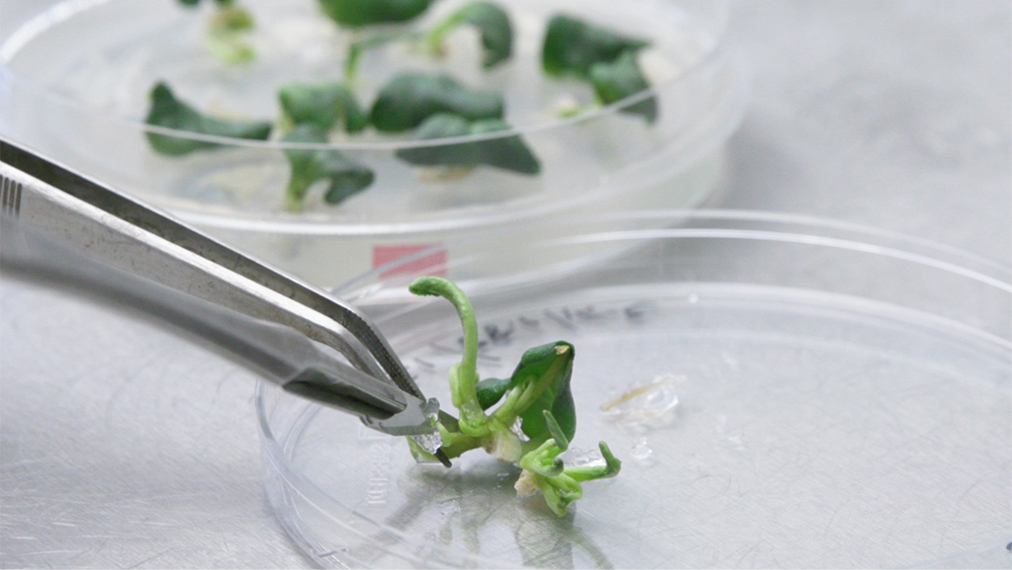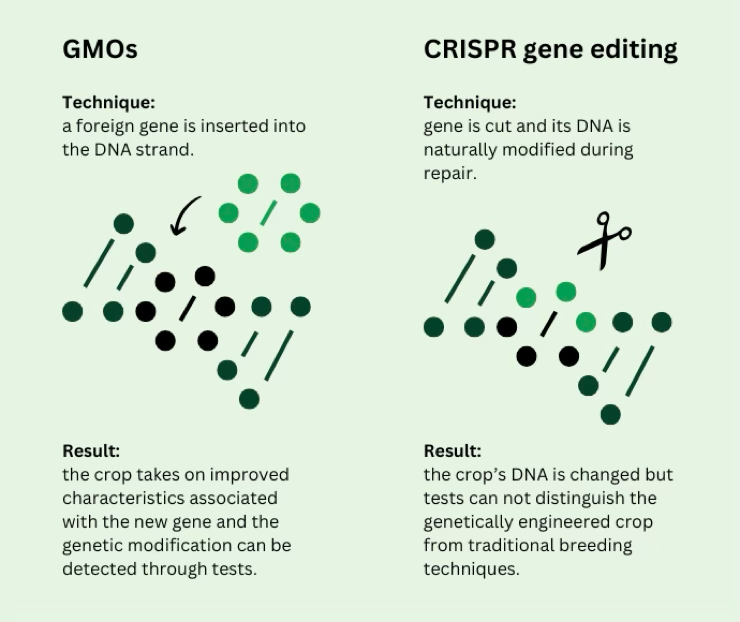The Genetic Technology (Precision Breeding) Act passing into law unlocks huge potential in England for the development and marketing of gene edited crops, making a significant step to reinforce food security in the face of climate change
What is Precision Breeding?

Precision breeding is a method of developing specific, desirable traits within an organism. Until recently, plant or animal breeding has relied on lucky variations arising naturally over time and then work from breeders to establish these as stable traits in a variety. Thanks to our growing understanding of genetics and the advent of powerful genome-editing tools like CRISPR, we now have the ability to "fine-tune" the genetic makeup of plants with unprecedented precision.
New genetic technologies enable us to alter the DNA of plants or animals using precise techniques such as gene editing. This allows for the rapid, accurate, and predictable development of desirable traits, leading to improved crop varieties.
Although these modifications are typically small, they can have a profound impact on the plant’s overall performance and resilience. The precise nature of the changes means that any changes are very controlled to the target sequence, and don’t affect any non-target genes.
Gene editing enables scientists to address a wide range of challenges in agriculture, including:
- Enhancing resilience to extreme weather events, such as droughts and heatwaves
- Increasing crop yield to meet growing global food demand
- Improving resistance to both existing and emerging diseases and pests
- Responding to changing consumer preferences by improving the shelf life, nutritional content, flavour, and appearance of crops
- Facilitating the adaptation of crops to new agricultural systems and environments

How to edit a gene?
Gene editing involves turning certain genes on or off by cutting out specific sections of DNA using a specialised enzyme. The same result could be produced by crossbreeding different varieties, as in conventional breeding, however the timescales to achieve this are much longer.
Gene editing differs significantly from genetic modification (GM), which involves the insertion of genetic material from one species into the DNA of another, often unrelated species. Unlike GM, gene editing works within the existing genetic framework of the organism, enhancing or altering its natural traits.
Ultimately, precision breeding offers a more efficient and sustainable way to meet the evolving demands of agriculture and food production, benefiting both producers and consumers alike.

